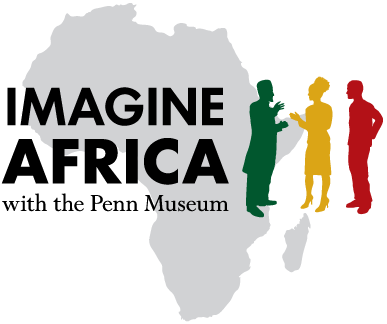The best-known African kingdom is undoubtedly Egypt, but most people would find it difficult to name another one. European or Asian philosophers, kings, and conquerors are common knowledge in America, while their African counterparts remain virtually unknown.














I really don’t think that the American education system places very much emphasis on histories outside of European and American histories. Since a nation builds its sense of identity on its own history and Americans certainly have a very strong sense of national identity, I suppose this is somewhat understandable. But it is also a shame that so many people are not exposed more to the ancient histories of other nations!
I think the myopic euro-ccentric education system is slowly changing though. Black history has been a mandatory subject in the Philadelphia school system since 2005: http://www.nytimes.com/2005/06/25/education/25philly.html
Absolutely! I’m embarrassed at how little I know after what I consider a very good education. We tend to have a very tiny view of the history of our entire world.
I would add that a lot of our knowledge about the world comes from television and film, not many written about the Zulus or Xhosa. and yes there is more emphasis on African-american education coming into the school system in Philadelphia (which is amazing to see), but what about the rest of America. I doubt TN or WV are following suit.
Written history is extremely biased, as has traditionally been from the Western perspective. In fact, I read an article in a Colonial Latin America class at Penn that pointed this out. It discussed the early interactions and trade relations between West African nations and the British. It said something to the extent of “Africans were self-reliant and had everything that the Europeans had (natural resources, manufactured goods) What they obtained from trade was due to desire for novel goods, not necessity”. The article went on to state that Western historians had ignored this obvious fact, and had shaped Africa, particularly West Africa, as dependent on the Europe for goods. I believe we know so little about Africa because there has been so little scholarship on it, particularly pre 1600s/colonialism.
The following entry is from students in Mr. Rooney’s World Cultures class at Saint Basil Academy, who researched this Imagine Africa theme as a part of the course.
Great kingdoms of Africa are less well known than kingdoms from Europe and Asia because of two reasons. One reason is that African kingdoms traded with other African kingdoms. European and Asian kingdoms had boats and other forms of water transportation, so they could trade with other kingdoms worldwide. Since African kingdoms lacked the forms of water transportation, they did not trade among the worldly kingdoms, thus being less well known than those who did. Those who traded worldwide traded with Europeans who colonized the Americas, so they would be a part of US History and known by Americans. African kingdoms would not be in US History because they did not trade with the European nations that colonized the Americas. Another reason is that the minerals and resources were pure and uncut, so there was little desire for them among the African kingdoms. The other, better known kingdoms had ways and people to make their minerals and resources desirable by other kingdoms. Africa did not have this, so they traded their goods between African kingdoms for the necessary goods, such as salt, so they were rarely traded elsewhere.
The following entry is from students in Mr. Rooney’s World Cultures class at Saint Basil Academy, who researched this Imagine Africa theme as part of the course.
We think that great kingdoms from Africa are less well known than the kingdoms from Europe and Asia for several reasons. One reason is because African Americans were treated unfairly and segregated for many years, so people did not want to acknowledge that Africans once ruled very powerful and influential kingdoms. They were treated as a means of getting work done for free and suffered a loss of much dignity. To reassure themselves that what they were doing was right, they said that Africans were less civilized and knowledgeable as they themselves were. Learning about the culture, customs,and traditions of a country makes them seem more intelligent and human, more civilized, which was obviously a problem for the US. Not teaching about all the achievements of the African people made them seem less important. Since African Americans were not considered “equal” to whites, their kingdoms were not stressed as much. They would not be “as important.” This was a terrible time in history.
The following entry is from students in Mr. Rooney’s World Cultures class at Saint Basil Academy, who researched this Imagine Africa theme as part of the course.
Africa is a mystery to the rest of the world. It is not very well known because what most people assume are things that are heard from the media. The media is only giving us the present, when the real soul of Africa is in its past. There is no interest in learning anything additional about Africa than what all the world knows such as slavery and trading. People have no interest in going deeper into Africa’s mysterious and fascinating world. Africa has affected other continents’ culture and their way of life. People also think of Africa as a huge desert with nothing to offer. African kingdoms date back to ancient times and other kingdoms have only developed in the past few hundred years or so. The kingdoms in other continents have formed other countries. These countries are filled with the descendants of most of the new countries’ immigrants. These kingdoms are the key to the past and show that Africa is not just a piece of wasted land, but the treasure trove of mystery and royalty.